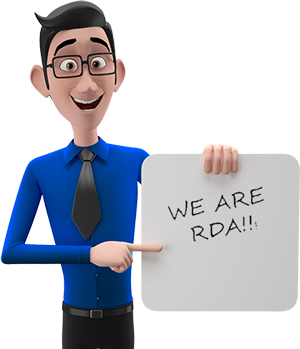Self-managed HOA setups are increasingly popular among homeowners seeking more control over their communities. Many find that self-management provides a unique combination of empowerment and local involvement, allowing residents to directly influence their neighborhood’s governance and maintenance.
A self-managed homeowners association (HOA) enables residents to handle their shared spaces and uphold community standards without the oversight of a management company. This approach promotes a stronger sense of ownership, often leading to cost savings and decisions more closely aligned with the community’s specific needs.
However, establishing a self-managed HOA is not without challenges. From adhering to legal requirements to addressing potential resident conflicts, there are key factors to consider. This guide provides a comprehensive roadmap to set up and manage a successful self-managed HOA, from gauging community interest to utilizing essential tools for effective governance.
What is a Self-Managed HOA?
A Self-Managed HOA is a homeowners association that operates without the direct involvement of a full-service management company. These community associations are led by an elected board of directors, often comprised solely of volunteer homeowners who take the reins in controlling the community’s operations. This approach enables members to cultivate a distinct community identity and strengthens interpersonal connections within the neighborhood.
Responsibilities of these boards are extensive; they cover not only financial management but also ensure the overall wellbeing of the community, a task that demands both vigilance and prompt action, especially in unforeseen circumstances. Despite the weight of these tasks, the Community Associations Institute (CAI) reports that 30-40% of community associations opt for self-management. This model is currently employed by an estimated 121,450 communities, impacting approximately 9.45 million housing units.
Even though self-managed, these communities occasionally might seek specialized assistance from property management companies, law firms, or financial experts for particular assignments or advice. This selective outsourcing allows the HOA board to maintain their autonomy and decision-making power while still benefiting from professional expertise in managing their community effectively.
Benefits of a Self-Managed HOA
A self-managed HOA presents numerous advantages to a community, primarily rooted in the independence it confers upon the homeowners and the board. As a self-managed community, residents maintain total authority over association matters, including financial oversight and maintenance scheduling. This level of control is conducive to customized decision-making, which becomes particularly effective when those in charge are familiar with the community’s unique attributes and requirements. This intimacy with community dynamics often surpasses the capabilities of an outside property management company.
Moreover, self-management can significantly slash operational costs by circumventing the need to pay for a full-service management company. These savings can be particularly meaningful for smaller associations where the cost-to-benefit ratio of hiring external managers may not be justifiable. When communities take the helm, they also gain the flexibility to establish rules and enforcement protocols that genuinely reflect the will and values of the residents, leading to a more harmonious living environment.
Another key benefit is the ability for community members to employ their personal skill sets for the betterment of their neighborhood. This heightened level of involvement cultivates a stronger sense of community and can foster proactive neighborly relationships, enhancing the overall quality of life for all residents.
Cost Savings
The prospect of cost savings is a compelling argument for a self-managed HOA. By taking charge of their own financial management, communities avoid the added expenses associated with hiring a full-service management company. Nonetheless, it’s crucial for self-managed communities to maintain meticulous financial records to prevent any future monetary complications.
While a self-managed HOA can usually function independently, there are instances where consulting with professionals, such as law firms or financial experts, is a prudent move. This strategic outsourcing for complex or legally sensitive matters can be significantly more cost-effective in the long run compared to relying solely on a management company for ongoing support. For example, hiring a community association manager or a financial management service for specific needs can provide the necessary expertise while allowing the community to retain financial command and minimize overall expenses.
Enhanced Community Involvement
A self-managed HOA inherently promotes a greater level of community involvement. The board’s ability to make autonomous, swift decisions regarding the community’s wellbeing is one of the foundational pillars of such involvement. The direct interaction between the board and residents usually results in a deeper understanding of the community’s needs, which in turn fosters a thorough responsiveness from the board.
By actively participating through different committees, homeowners can shape and refine aspects of community living like architectural integrity, security protocols, event planning, and landscaping specifics. The increased communication and collaboration strengthen the community and empower residents, as they become direct stakeholders in the collective welfare of their neighborhood. This engagement typically spurs a more robust spirit of volunteerism, enriching both the community’s culture and the effectiveness of the HOA.
Tailored Decision-Making
In a self-managed HOA, the decision-making process is notably streamlined. Without the intermediary step of consulting an external property management company, the board can rapidly enact rules and measures that have immediate positive impacts on the community. Board members, armed with a thorough understanding of the neighborhood and its residents, can make informed choices about service providers, manage community requirements, and navigate the unique challenges that arise.
According to the Community Associations Institute, a significant proportion of community associations opt for self-management, underscoring the value these communities place on decision-making autonomy. As a self-managed HOA, there’s a palpable sense of being in the driver’s seat for all aspects of community life, from governance to everyday function, resulting in both financial prudence and increased resident contentment.
Challenges of a Self-Managed HOA
Running a self-managed HOA can come with several challenges that may impact its efficacy and harmony within the community. Typically, these homeowners associations are reliant on volunteers who may not possess the necessary training, possibly leading to inefficiencies and compliance issues with HOA laws and regulations. This reliance on untrained individuals can create vulnerabilities in ensuring the association is run according to the legal standards.
A common issue facing self-managed HOAs is apathy among board members, which can result in poor financial management. This lack of serious commitment to budget preparation and financial oversight can lead to funding shortages and decreased property values, affecting all members of the community. The hands-on approach required can also be overwhelming for volunteer board members who must juggle their roles with full-time jobs and family obligations, leading at times to neglected community affairs.
Without the assistance of a professional property manager, board members must manage complex HOA tasks, which may exceed their expertise or available time, leading to sloppy management and missed deadlines. Additionally, conflict resolution is a skill that might be lacking, as board members are often untrained in mediation. This can lead to disputes that fester and are not addressed effectively, eroding community trust and satisfaction.
Compliance and Legal Requirements
For self-managed HOAs, legal compliance is a cornerstone of their operation. Each state has its own specific HOA laws, and these must be adhered to in a timely manner to avoid penalties and legal issues. Failure to meet these legal requirements can lead to monetary fines, lawsuits, and other legal repercussions.
Board members in a self-managed HOA need to possess, or have access to, thorough legal knowledge in order to cover all necessary legal grounds and mitigate risks of disputes and lawsuits from members. Legal non-compliance can be a significant risk factor for any HOA, making it imperative to understand their duties, obligations, and the duty of care required. This duty involves taking reasonable steps to prevent foreseeable harm to the association and its members, and represents a core responsibility that cannot be taken lightly.
Potential for Conflict
Conflicts are an innate part of community living, and in community associations, these disputes can be between neighbors or in disagreement with the board of directors. The absence of a professional property management company may mean that there is no neutral party to help guide the resolution of these disputes, which can strain relationships and impede the operation of the community.
On occasion, disagreements escalate to personal conflicts, especially during contentious events such as board elections, where rivalries can develop. If unchecked, these issues can impact the overall management of the HOA. Furthermore, the absence of checks and balances that can be provided by an external management company can result in some board members potentially wielding unchecked power, a situation that may lead to further legal problems or lawsuits.
Time Commitment
The task of managing a self-managed HOA is a substantial one and requires a significant time investment from its volunteers. This commitment is essential regardless of the size of the community and is a major consideration for those seeking board membership. The balancing act between HOA responsibilities and personal life can lead to time constraints that affect the quality and attentiveness of management.
The board’s responsibility extends to the entire gamut of financial management, which includes but is not limited to, bookkeeping, budgeting, and handling financial transactions. Each of these tasks requires a steady allocation of time and attention. In addition, being ready to respond to emergencies or unexpected events means that members must be willing to invest time continually, keeping the community prepared for any situation.
While hiring a full-service management company is an option, the associated costs often lead smaller communities to opt for self-management. This path requires not just a time investment from the board, but also a community-wide dedication from residents to ensure smooth functioning and proper maintenance of communal aspects and amenities.
Steps to Establish a Self-Managed HOA
Establishing a self-managed HOA (homeowners association) can have numerous benefits for a community, from fostering stronger neighborhood relationships to tailoring governance to the needs of the residents. This approach to community management is most often successful in smaller communities, where the scale of management is feasible for volunteer board members. However, even larger communities may consider self-management in order to gain more control and create a sense of togetherness within the neighborhood. Here are the critical steps to consider when forming a self-managed HOA.
Assess Community Interest
Before launching a self-managed HOA, it’s important to connect with your neighbors to determine if there is interest in forming an association. An HOA exists to maintain the community, potentially enhance property values, and enforce community standards. Each member’s voice is vital in a self-managed setup, so early engagement can set the tone for a supportive and collaborative environment.
Education is key when developing a self-managed HOA; board members can greatly benefit from training to fill any knowledge gaps and expand their skills for effective community management. Researching other HOAs can give insights into their structure, amenities, and regulations. To ensure broad involvement, invite homeowners to participate in committees, reinforcing the communal sense. Lastly, understanding local laws and regulations will be critical, so consider consulting a local law firm with expertise in HOAs to navigate legal requirements correctly.
Develop a Foundational Document
Your HOA’s foundational documents are the bedrock of your community. They consist of the Declaration of Covenants, Conditions, and Restrictions (CC&Rs), Articles of Incorporation, Bylaws, and Rules and Regulations. These documents should be thoroughly drafted as they set the framework for governance and daily operations. Incorporation, a step that requires following certain legal procedures, can provide protection to the board members from personal liabilities, making it a crucial step in the establishment process. Working with a community association law firm or consulting established governance documents can help ensure these foundational pieces provide comprehensive and legally-sound guidance for your association.
Hold an Initial Community Meeting
A foundational step in launching your self-managed HOA is holding an initial community meeting. This platform allows for the nomination and election of the board of directors and sets the stage for open communication between residents. Discussing the roles, responsibilities, and expectations of board members and community participants will clarify the commitment required. The meeting is also a prime opportunity for residents to voice their expectations and concerns, beginning the trend of open and transparent communication that is key to a self-managed community’s success. Clear procedures for future meetings and interim communication should also be established.
Elect Members to the Board
The board of directors is central to the effective operation of a self-managed HOA. Ideal members are engaged community participants with a sound understanding of business principles, strong leadership skills, and sufficient time to invest in the association. By sending out nomination forms in advance, the community can prepare for a structured election process. It’s important to consider the qualifications of candidates, ensuring that elected board members are well-equipped to fulfill their responsibilities, which range from leadership to meticulous planning, to the community’s benefit.
Set Up Financial Systems
Financial responsibilities within a self-managed HOA are significant and require diligent oversight, carried out by a volunteer treasurer or a similar position. This entails bookkeeping, budgeting, and financial reporting – all indispensable aspects of the board’s duties. In addition to managing the HOA’s funds, the board should also establish a clear policy for collections and delinquencies. Hiring an accountant or financial management service provider to audit your financials yearly can bolster transparency and foster trust within the community by ensuring adherence to financial protocols.
Create Rules and Regulations
The rules and regulations in the governing documents must align with the community’s needs and the board’s ability to enforce them. These regulations are rooted in the CC&Rs, bylaws, and Articles of Incorporation. Members must be familiar with and understand these documents to prevent conflicts and maintain community harmony. A self-managed HOA’s rules typically prioritize the welfare and preferences of the community, demonstrating a flexibility that may not always be present in associations run by management companies. Effective rule management is essential in minimizing disputes among neighbors.
Outline Maintenance Responsibilities
An HOA is responsible for the upkeep of shared spaces and amenities, such as parks, community centers, and other facilities. Without the support of property management companies, board members need to coordinate maintenance services, manage vendor relationships, and keep detailed records of all operations. This comprehensive approach to maintenance is vital since the condition of shared resources can directly influence property values in the community. Active and systematic maintenance ensures an inviting and well-maintained living environment for all residents.
Essential Tools for Management
For homeowners associations (HOAs), particularly in a self-managed community, it is vital to have a set of tools that can simplify and streamline the many facets of community management. Essential tools for a self-managed HOA can range from HOA management software that automates administrative tasks to centralized systems that keep residents informed and involved in community activities.
HOA management software provides a centralized interface where tasks such as dues collection, maintenance request management, and financial reporting can be automated, which enhances the efficiency of self-managed communities. These software platforms allow board members to focus more time on making strategic decisions rather than getting bogged down with routine paperwork.
A vital feature of some HOA management software is the creation of a centralized member hub that empowers residents to submit and track payments electronically, access community calendars for upcoming events, and receive important alerts which promote engagement and participation.
Communication tools are also key components of these platforms, offering the ability to send mass notifications such as texts, emails, and newsletters. This ensures that all residents are kept up-to-date with timely information about community happenings, rule changes, or emergency alerts.
Many HOA management software solutions provide a free trial period, usually for 30 days, enabling boards to try out the features and determine the software’s effectiveness before making a financial investment. It is essential for self-managed HOAs, especially smaller ones, to find affordable management platforms that will aid in fulfilling their organizational duties and staying compliant with local regulations.
Software Options for Organization
In the world of property management, having the right software to keep everything organized can make a significant difference for self-managed HOAs. HOA management software not only replaces time-consuming manual tasks but also increases the overall efficiency of board members and improves the functionality of the community.
The key functionalities to look for include digital dues collection, automated accounting, member communication tools, and maintenance tracking. Platforms like PayHOA and Condo Control provide a consolidated approach, allowing boards to handle payments, service requests, financial reporting, and member communications all from a single portal. This level of simplification significantly aids in overall community management.
Finding the appropriate software tools helps HOAs prioritize tasks, build reliable teams, and address specific community pain points. A free trial period offered by many providers helps ensure that the community board chooses a solution that best meets their unique management goals before committing funds.
Communication Platforms
Effective communication sits at the heart of any successful homeowners association. Within community associations, clear and consistent communication can prevent misunderstandings, reduce conflicts, and keep all members apprised of HOA activities.
A variety of communication channels can be employed, from newsletters and emails to websites and social media platforms, ensuring broad reach and timely delivery of information. The appropriate mix of these tools can cultivate trust among members and foster a collaborative spirit within the community.
Communication is a two-way street for HOA boards; not only must they keep residents in the loop, but they must also maintain open lines with vendors for maintenance issues and with city officials for compliance matters. The right communication software can make this task less daunting by streamlining the way updates and announcements are dispensed, leading to enhanced engagement from residents.
Financial Management Tools
Efficient financial management is a cornerstone of successful self-managed HOAs. Utilizing self-managed HOA software with robust financial management capabilities can facilitate accurate and seamless tracking of payments and help manage the community’s finances more aptly.
Financial management tools often feature e-statements and online payment options, which heighten transparency and can reduce delinquencies. These software solutions ensure that boards retain up-to-date financial data, while simultaneously providing a platform for residents to conveniently access information about community activities.
The availability of online portals through such software aids homeowners in making service requests, paying dues, and accessing critical community documents, making the financial management process more coherent and less cumbersome. The integration of such advanced tools can offload much of the administrative burden, enabling community associations to run more effectively and smooth the overall operational process.
Responsibilities of a Self-Managed HOA
Running a self-managed HOA means that the board of directors, elected by the homeowners, takes on the multifaceted roles typically handled by a full-service management company. These dedicated board members oversee all administrative, managerial, and financial tasks, providing an intimately managed community association experience. By sidestepping the employment of a property management company, self-managed HOAs often can significantly reduce their expenditures, affording homeowners potential savings on their fees.
However, with this cost efficiency comes a substantial commitment: the board must thoroughly comprehend and strictly adhere to the community’s governing documents. These documents, typically including the Declaration of Covenants, Articles of Incorporation, and Bylaws, serve as the cornerstone of the association’s regulations and procedural standards. Awareness and enforcement of these guidelines help ensure that the self-managed community does not face legal complications due to non-compliance or management oversights.
Though challenging at times, approximately 30-40 percent of community associations across the United States have embraced the self-managed model, which is indicative of its feasibility. Managing an association independently also provides homeowners with a sense of sovereignty and a tighter grip on community decisions. This autonomy enables the board to handle internal disputes professionally and ensure that community standards are maintained, all while reflecting the values and priorities of the residents.
The move toward a self-managed association isn’t without its challenges, though. It undeniably requires active and consistent participation from its board members and a willingness to learn and navigate through the complexities of HOA management without the support of professional property management companies or law firms that typically fill this role.
Collecting Dues
In a self-managed HOA, one of the critical responsibilities is the collection of dues and fees from its members. These funds are the lifeblood of the association, paying for common area maintenance, amenities, and the services necessary to keep the community operating smoothly. An adept self-managed HOA board can streamline the dues collection process by incorporating electronic tools to send out invoices, statements, and reminders, which not only saves time but can also improve collection rates.
Prompt dues collection is essential in maintaining a healthy financial status for the association. The board has the authority to enforce late fees and send notifications to homeowners who are delinquent in their payments. Moreover, the production of monthly financial reports allows for tracking dues collection and reconciliation with bank statements, providing a clear picture of the association’s financial health.
Open communication channels about financial responsibilities also play a vital role. By utilizing digital platforms or community message boards, the board can maintain transparency regarding dues, thereby fostering a community environment grounded in mutual understanding and respect, which encourages the timely submission of payments by homeowners.
Managing Community Rules
An intrinsic benefit of self-management is the capacity for the board to address rule violations with firsthand understanding and compassion intrinsic to being part of the community. The board is imbued with the power to forge and enforce community rules that directly reflect the unique dynamics and values of their neighborhood. This personalized approach can result in a harmonious living environment with fewer arbitrary restrictions than might be seen with external property management companies.
The influence of a self-managed board extends into how rules are enforced. With a default posture for leniency and dialogue, board members can navigate community disputes and violations with greater empathy, avoiding the potential backlash that often accompanies the rigid policies and penalties enacted by full-service management companies. The aim is not only to preserve the community’s standards but also to maintain its desirability and contentment among the residents, reducing turnover and community dissatisfaction.
The flexibility to tailor rules and policies is a significant advantage, allowing self-managed HOAs to align their governance more accurately with the community’s voice. This approach requires board members to regularly engage with their neighbors, gathering feedback and opinion to ensure the rules continue to serve the best interests of all parties involved.
Maintenance Coordination
A cornerstone of a successful self-managed HOA is the coordination of maintenance and repair services. Without the intermediary services of a property management company, the board must communicate directly with vendors and contractors to schedule and oversee necessary maintenance tasks. This requires proactive and hands-on involvement from board members to ensure that everything from landscaping to building repairs is handled efficiently, safeguarding property values and upholding the expectations of the community.
Part of maintenance coordination involves developing comprehensive schedules and checklists that ensure all aspects of the community are adequately maintained. The board must juggle these tasks while remaining vigilant to community standards and legal requirements, showcasing their commitment to a well-managed and desirable living space.
Building trusted relationships with vendors is also crucial, as it can translate into prioritized service and potential cost savings for the association. By working collaboratively with service providers, a self-managed HOA can ensure that all maintenance needs are promptly and effectively addressed, which is crucial for the ongoing satisfaction of community residents and the overall integrity of the association’s properties.
Tips for Successful Self-Management
To create a thriving self-managed HOA, it is vital for the board to operate with the same level of professionalism as a full-service management company. Regularly scheduled board meetings are essential for proactively addressing community concerns and preventing minor issues from becoming major complications. Creating and strictly adhering to a sustainable budget before the start of the new calendar year is critical to ensure fiscal responsibility and long-term financial management.
Bringing on board residents with marked abilities in leadership, management, and strategic planning can exponentially increase the board’s effectiveness. Meanwhile, even a self-managed community might benefit from the support and expertise of professional entities such as law firms or financial management companies. These kinds of partnerships allow the board to retain decision-making power while lessening the administrative load.
Foster Open Communication
Open communication is the cornerstone of successful community associations. It is the board’s responsibility to maintain clear and consistent channels of communication with residents to avoid misunderstandings and to build a sense of belonging among the community members. Newsletter dispatches, email updates, an up-to-date website, and active social media platforms are all efficient ways to disseminate information and engage residents.
Likewise, the board must establish and maintain open lines of communication with vendors to coordinate maintenance services effectively and with city officials to ensure compliance with laws and ordinances. A formalized process is vital in this regard—particularly for smaller associations where informal practices can lead to oversight—to prevent costly mistakes and negligence.
Handle Conflicts Effectively
In a self-managed HOA, conflicts are inevitable; they often stem from the diverse personality types among homeowners. The board, particularly the president, must have strong conflict-resolution skills to manage disagreements fairly and efficiently. This professional handling of disputes helps in keeping them as separate from personal animosity as possible.
It is also constructive for the board to set clear communication policies in advance, which can prove instrumental in mitigating disputes and delineating how conflicts should be managed. This helps maintain a peaceful and cooperative atmosphere within the community, even when confrontations are unavoidable.
Stay Informed on Local Laws
Compliance with local laws is non-negotiable for a self-managed HOA. These regulations dictate the legal framework within which the HOA operates and failing to adhere to them can pose significant risks. Laws governing HOAs do differ from state to state, so boards must understand and abide by these specific regulations.
To stay abreast of legal changes and to understand their rights and obligations fully, self-managed HOAs should consider the services of a specialized lawyer. Having a lawyer on retainer can aid in interpreting the governing documents correctly and ensure the association makes informed decisions when faced with complex issues, from pet policies to the enforcement of rules, thus mitigating compliance risks.
Foster Open Communication
Effective communication stands as the cornerstone of every successful homeowners association (HOA). It is the bridge that connects the board to the homeowners, ensuring everyone is on the same page and fostering a robust sense of community. Open communication not only keeps residents abreast of the HOA’s activities but also helps in mitigating conflicts and misunderstandings.
To achieve this, an array of communication channels should be employed. Newsletters, emails, websites, and social media platforms are invaluable tools in engaging residents and disseminating important information promptly. Not only do these channels facilitate dialogue within the community, but they also aid the HOA board in maintaining a transparent relationship with vendors and city officials, which is critical for scheduling maintenance services and ensuring the community’s compliance with relevant laws and regulations.
A structured communication process is pivotal for HOAs, regardless of their size. It ensures that messages are disseminated in an organized manner, compliance is maintained, and expensive errors due to oversight or negligence are avoided. Establishing clear communication protocols will help in maintaining an organized, well-managed community that residents are proud to call home.
Handle Conflicts Effectively
Managing conflicts within a homeowners association (HOA) can be a challenging aspect of running a self-managed community, but with the right approach, it can be handled effectively. The board, especially the HOA president, often has to adopt dual roles to mediate and manage disputes. Strong conflict-resolution skills are vital to address disagreements adeptly and professionally.
When conflicts arise, it’s important to remember they are issues between the board and individual members and should never be taken personally. A professional manner is essential at all times. Establishing clear communication policies is a critical step towards mitigating conflicts. These policies should outline procedures and guidelines for managing disputes within the community, ensuring all members understand the process.
Addressing conflicts head-on, without fear of confrontation, contributes to a harmonious community atmosphere. By demonstrating effective dispute resolution skills, board members can diffuse tensions and maintain a positive environment for all homeowners.
Guidelines for Conflict Resolution
- Approach Professionally: All disputes should be addressed with a professional demeanor, maintaining respect for all parties involved.
- Clear Communication: Implement policies that clearly indicate how conflicts will be managed within the community.
- Effective Mediation: The HOA president and board members should develop strong conflict-resolution skills to serve as mediators.
Handling conflicts with a structured and calm approach can significantly ease the process and result in amicable solutions for everyone involved in the self-managed community.
Stay Informed on Local Laws
Understanding the local laws governing homeowners associations (HOAs) is a crucial aspect of managing a self-managed community effectively. Compliance with state-specific laws ensures that the association operates within legal parameters and helps to mitigate potential risks.
Self-managed HOAs are bound to the legal rights and obligations that come into effect upon the property purchase within regulated areas. To stay ahead of any legislative changes and maintain compliance, these associations must actively keep their legal knowledge up-to-date.
For nuanced legal situations, like setting pet policies or enforcing community rules, the guidance of a specialized attorney can be invaluable. Property management companies often work with law firms, but self-managed HOAs too can benefit immensely from the expertise of a lawyer who is well-versed in condo and HOA regulations.
To minimize compliance risks, self-managed HOAs may consider keeping a law firm on retainer. This provides a safeguard by ensuring that there is always professional legal advice at hand to assist in the proper interpretation of governing documents and adherence to local regulations. Engaging in this partnership can be a proactive step towards maintaining a healthy and legally compliant community association.
Related Articles:
- How to Successfully Set Up a Self-Managed HOA for Your Community
“Steps to set up a successful self-managed HOA.” - Strategic Planning for Your HOA
“Strategies for effective HOA planning.” - HOA Property Manager Responsibilities: A Financial Perspective
“A financial perspective on HOA property manager responsibilities.”








